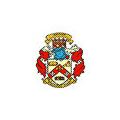Studies & Degrees in Human Biology
Choose where you would like to study Human Biology:
DenmarkIndiaNepalSpainThe United KingdomThe United StatesZimbabweHuman Biology Study Programs
Human Biology is an interdisciplinary academic field, encompassing the studies of biology, biological anthropology, nutrition, and medicine. The main focus is on human beings, and a major challenge is to address certain social issues from a scientific and social perspective. This discipline is a relatively new one, founded in 1970 by a group of Stanford faculty members.
In general, human biologists explore the concept of a healthy body and the mechanisms needed to keep it this way; they formulate and evaluate health. Furthermore, human biologists explore the way interrelated communities and ecosystems function in relation with their environment. They also deal with environmental and other public policy issues affecting welfare. Therefore, they provide advice to managers, politicians, health care workers, and the general public.
Personal Qualities
Personal qualities required for this discipline relate with the ability to draw from various academic fields and draw conclusions in a scientific and precise manner. A fuller list includes:
- Have an aptitude for sciences
- Able to carry out extensive research
- Ability to concentrate and carry out accurate work
- Logical and analytical thought
- Flexible and able to work as a part of a team
Study Options
Human biology programs are available in various universities, and usually are inter-departmental and inter-disciplinary ones. They normally integrate topics from medical sciences, biological and social sciences, as well as humanities. The goal of any Human Biology program should be to provide a broad education focused on an area of biological science relevant to humans. Students embarking on such a degree will receive a solid foundation in life science courses, together with some insight from humanities and social sciences.
Some universities only allow entrance into human biology courses into the second or third years of study, and a sound foundation in the sciences may be required. Entry can be quite competitive, and you should be prepared to be faced with some challenging study material. It is also worth noting that you would most likely need a Ph.D. degree if you wish to carry out independent research, industrial research, and college teaching, or, if you wish to advance in administrative positions. A master's degree would probably be sufficient for some jobs in basic research, applied research or product development, management, or inspection. As far as the bachelor's degree is concerned, it would be relevant for certain non-research jobs.
Career Options
It is evident that the career in human biology one wishes to pursue is highly dependent on the degree they have gained. However, because of the broadness of the field, Human Biology graduates have a very wide range of career options. Some of the more exciting prospects include the biotechnology industry, bio-medical industry, and so on. Another possibility would also be to enter a more general career – in business, management, accountancy, etc. Human biologists can work in education, food and beverage, health organizations, and government agencies. Examples of jobs are: Bioinformaticist; Biotechnology laboratory assistant; Blood bank technologist; Cardiovascular technologist; Geneticist assistant; Health administrator; Home care worker; Nursing assistant; Medical laboratory technologist; Personal trainer; Physician assistant; Science technical writer. Not to exclude the possibility to teach and work in an academic setting.



